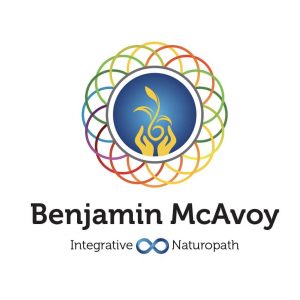Top Spiritually transmitted diseases are Faux ,Fast-Food, Confused motivation, Identifying with spiritually experiences etc.
The following 10 categorisations are not intended to be definitive but are offered as a tool for becoming aware of some of the most common spiritual transmitted diseases.
1. Fast-Food Spirituality: This is also Spiritually transmitted. spirituality with a culture that celebrates speed, multitasking and instant gratification and the result is likely to be fast-food spirituality. Fast-food spirituality is a product of the common and understandable fantasy that relief from the suffering of our human condition can be quick and easy. One thing is clear, however: spiritual transformation cannot be had in a quick fix. Spiritual transmitted diseases creates many problems.
2. Faux Spirituality: Faux spirituality is the tendency to talk, dress and act as we imagine a spiritual person would. It is a kind of imitation spirituality that mimics spiritual realisation in the way that leopard-skin fabric imitates the genuine skin of a leopard.
3. Confused Motivations: Although our desire to grow is genuine and pure, it often gets mixed with lesser motivations, including the wish to be loved, the desire to belong, the need to fill our internal emptiness, the belief that the spiritual path will remove our suffering and spiritual ambition, the wish to be special, to be better than, to be “the one.”
4. Identifying with Spiritual Experiences: In this disease, the ego identifies with our spiritual experience and takes it as its own, and we begin to believe that we are embodying insights that have arisen within us at certain times. In most cases, it does not last indefinitely, although it tends to endure for longer periods of time in those who believe themselves to be enlightened and/or who function as spiritually transmitted.
5. The Spiritualised Ego: This disease occurs when the very structure of the egoic personality becomes deeply embedded with spiritual concepts and ideas. The result is an egoic structure that is “bullet-proof.” When the ego becomes spiritualised, we are invulnerable to help, new input, or constructive feedback. We become impenetrable human beings and are stunted in our spiritual growth, all in the name of spirituality.
6. Mass Production of Spiritual Teachers: There are a number of current trendy spiritual traditions that produce people who believe themselves to be at a level of spiritual enlightenment, or mastery, that is far beyond their actual level. This disease functions like a spiritual conveyor belt: put on this glow, get that insight, and — bam! — you’re enlightened and ready to enlighten others in similar fashion. The problem is not that such teachers instruct but that they represent themselves as having achieved spiritual mastery.
7. Spiritual Pride: Spiritual pride arises when the practitioner, through years of laboured effort, has actually attained a certain level of wisdom and uses that attainment to justify shutting down to further experience. A feeling of “spiritual superiority” is another symptom of this spiritually transmitted disease. It manifests as a subtle feeling that “I am better, more wise and above others because I am spiritual.”
8. Group Mind: Also described as group-think, cul-tic mentality or ashram disease, group mind is an insidious virus that contains many elements of traditional co-dependence. A spiritual group makes subtle and unconscious agreements regarding the correct ways to think, talk, dress, and act. Individuals and groups infected with “group mind” reject individuals, attitudes, and circumstances that do not conform to the often unwritten rules of the group.
9. The Chosen-People Complex: The chosen people complex is not limited to Jews. It is the belief that “Our group is more spiritually evolved, powerful, enlightened and, simply put, better than any other group.” There is an important distinction between the recognition that one has found the right path, teacher or community for themselves, and having found The One.
10. The Deadly Virus: “I Have Arrived”: This disease is so potent that it has the capacity to be terminal and deadly to our spiritual evolution. This is the belief that “I have arrived” at the final goal of the spiritual path. Our spiritual progress ends at the point where this belief becomes crystallised in our psyche, for the moment we begin to believe that we have reached the end of the path, further growth ceases.
“The essence of love is perception,” “Therefore the essence of self love is self perception. You can only fall in love with someone you can see clearly–including yourself. To love is to have eyes to see. It is only when you see yourself clearly that you can begin to love yourself.”





